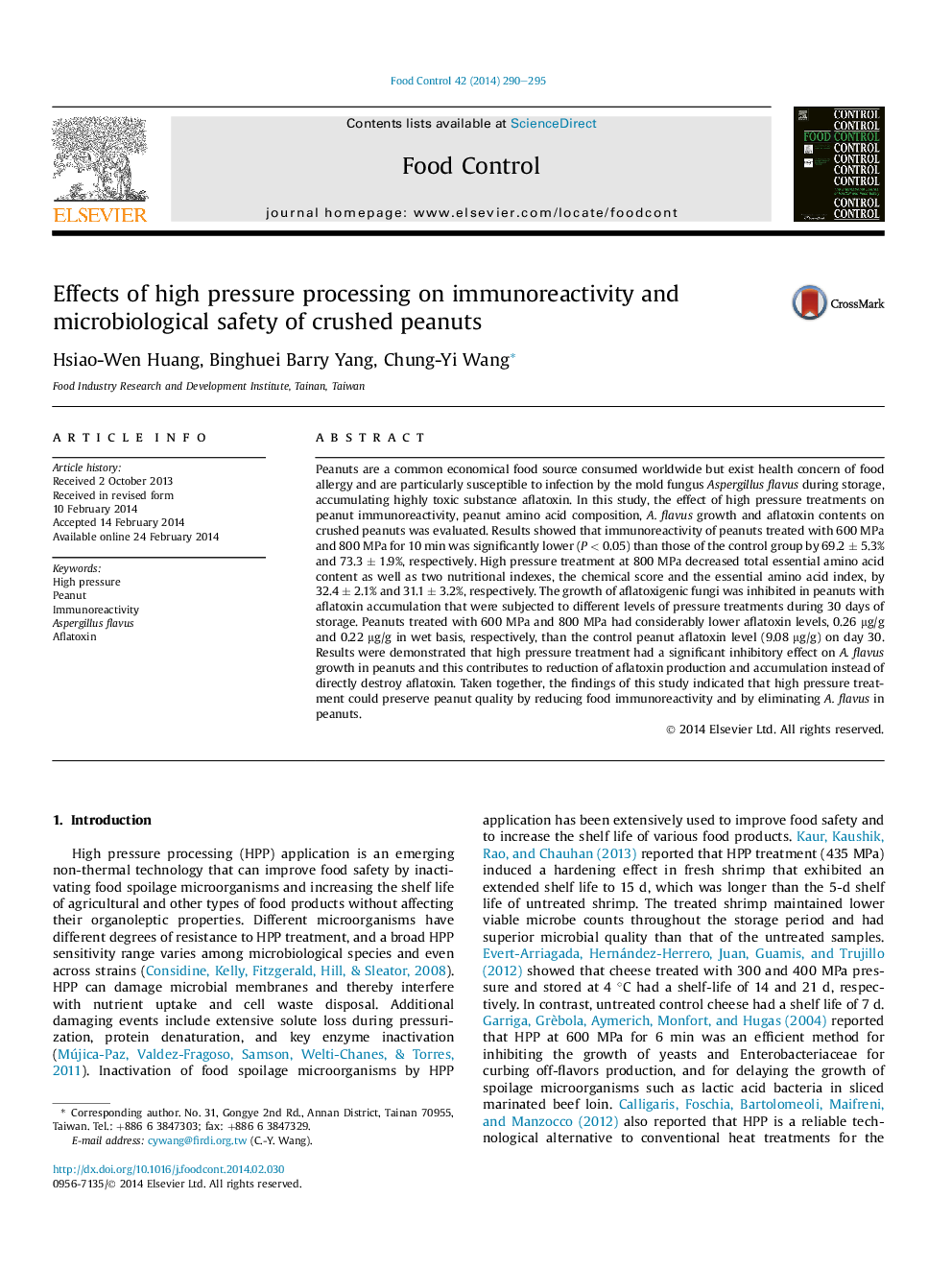| Article ID | Journal | Published Year | Pages | File Type |
|---|---|---|---|---|
| 6391717 | Food Control | 2014 | 6 Pages |
Abstract
Peanuts are a common economical food source consumed worldwide but exist health concern of food allergy and are particularly susceptible to infection by the mold fungus Aspergillus flavus during storage, accumulating highly toxic substance aflatoxin. In this study, the effect of high pressure treatments on peanut immunoreactivity, peanut amino acid composition, A. flavus growth and aflatoxin contents on crushed peanuts was evaluated. Results showed that immunoreactivity of peanuts treated with 600 MPa and 800 MPa for 10 min was significantly lower (P < 0.05) than those of the control group by 69.2 ± 5.3% and 73.3 ± 1.9%, respectively. High pressure treatment at 800 MPa decreased total essential amino acid content as well as two nutritional indexes, the chemical score and the essential amino acid index, by 32.4 ± 2.1% and 31.1 ± 3.2%, respectively. The growth of aflatoxigenic fungi was inhibited in peanuts with aflatoxin accumulation that were subjected to different levels of pressure treatments during 30 days of storage. Peanuts treated with 600 MPa and 800 MPa had considerably lower aflatoxin levels, 0.26 μg/g and 0.22 μg/g in wet basis, respectively, than the control peanut aflatoxin level (9.08 μg/g) on day 30. Results were demonstrated that high pressure treatment had a significant inhibitory effect on A. flavus growth in peanuts and this contributes to reduction of aflatoxin production and accumulation instead of directly destroy aflatoxin. Taken together, the findings of this study indicated that high pressure treatment could preserve peanut quality by reducing food immunoreactivity and by eliminating A. flavus in peanuts.
Related Topics
Life Sciences
Agricultural and Biological Sciences
Food Science
Authors
Hsiao-Wen Huang, Binghuei Barry Yang, Chung-Yi Wang,
